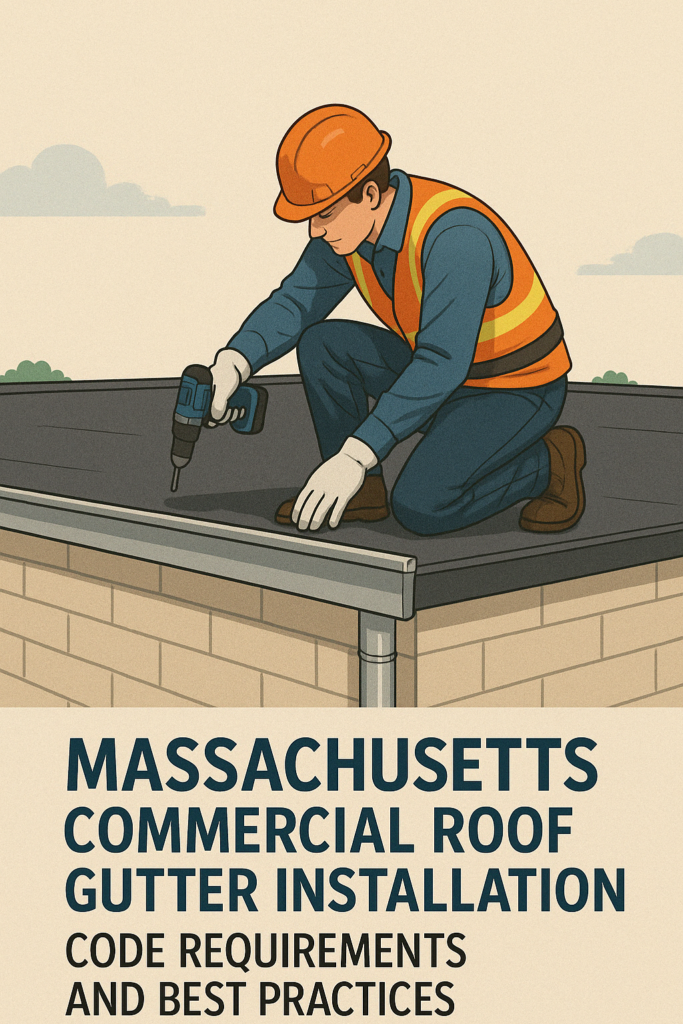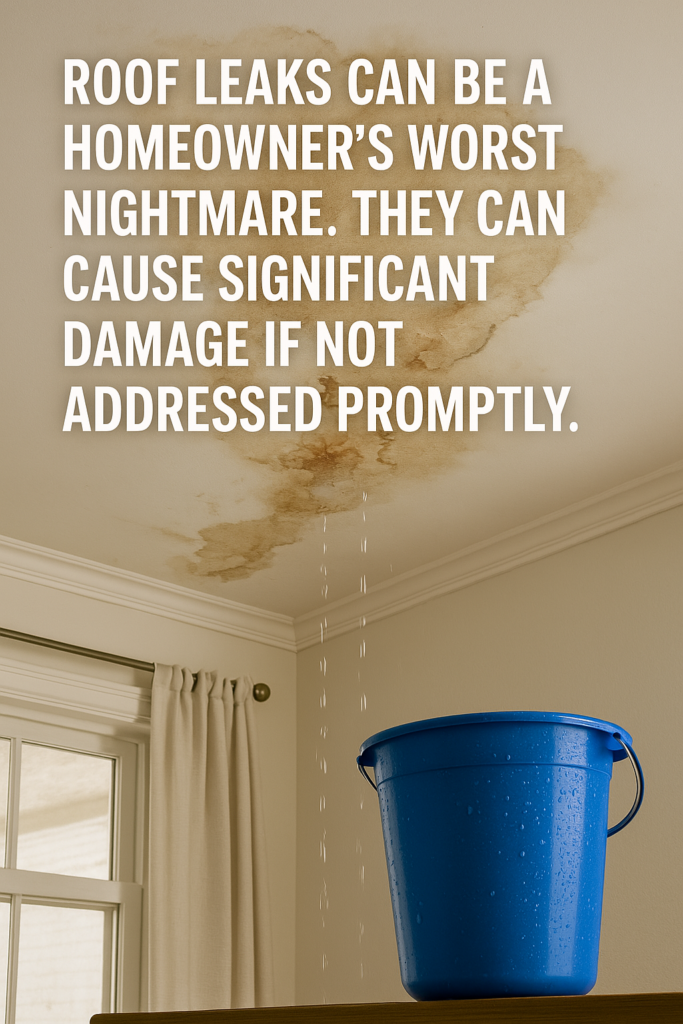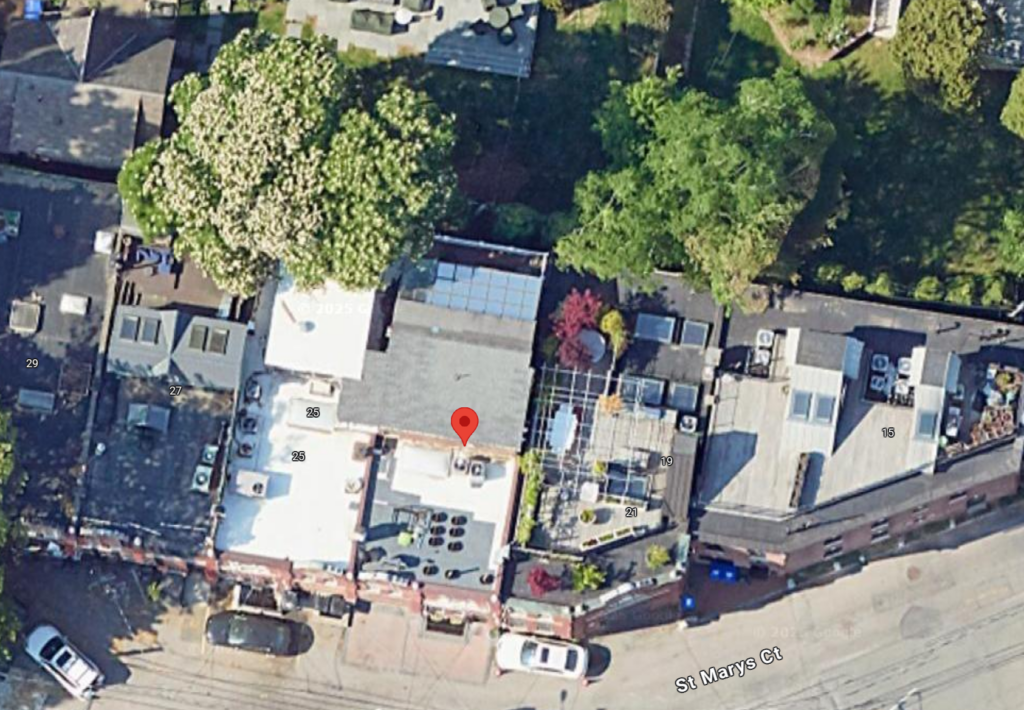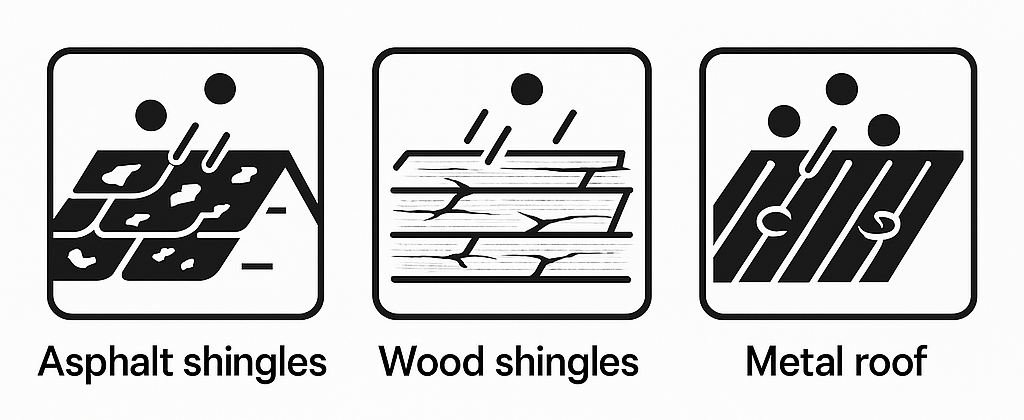Get Your Accurate Cost Estimate to Replace Roof in 2024: Essential Guide
Reading Time: 9 minutesWe were wondering about the cost estimate for replacing the roof in 2024. The new roof cost depends on various factors such as size, materials, and location. Detailed yet straightforward, this article will help you navigate the multiple roof costs and components to provide a tailored estimate for your roof replacement, keeping your budget in clear view.
As Dennis Tchernov, the main contractor around here, I’ve got to tell you, replacing a roof is a crucial task with its own complexities. It’s not just about choosing the right shingles; it involves meticulous planning, selection of materials, and precise execution. Here in 2024, the cost of getting a new roof over your head depends on various factors, such as the size of your roof, the materials you opt for, and where your lovely home is situated. Let me walk you through the ins and outs of roof replacement costs, helping you understand what to expect and how to budget for this vital home improvement project efficiently.

Now, I like to sprinkle a bit of humor on the job site. I always joke, “If replacing a roof was as easy as changing a light bulb, I’d be out of a job! But thankfully, it requires a bit more skill, and not everyone is as enthusiastic about heights as we are.”
Key Takeaways
The roof replacement cost is influenced by factors such as the roof’s size, complexity, chosen materials, and geographic location, with labor being a significant cost component.
Roofing material costs can significantly vary, with asphalt shingles being the most common and affordable and slate roofing being the most expensive but boasts high durability and longevity.
Properly calculating your roof replacement costs includes accurately measuring your roof, estimating material costs, factoring in labor, and considering additional expenses like permits and old roof removal.
Factors Affecting Roof Replacement Cost
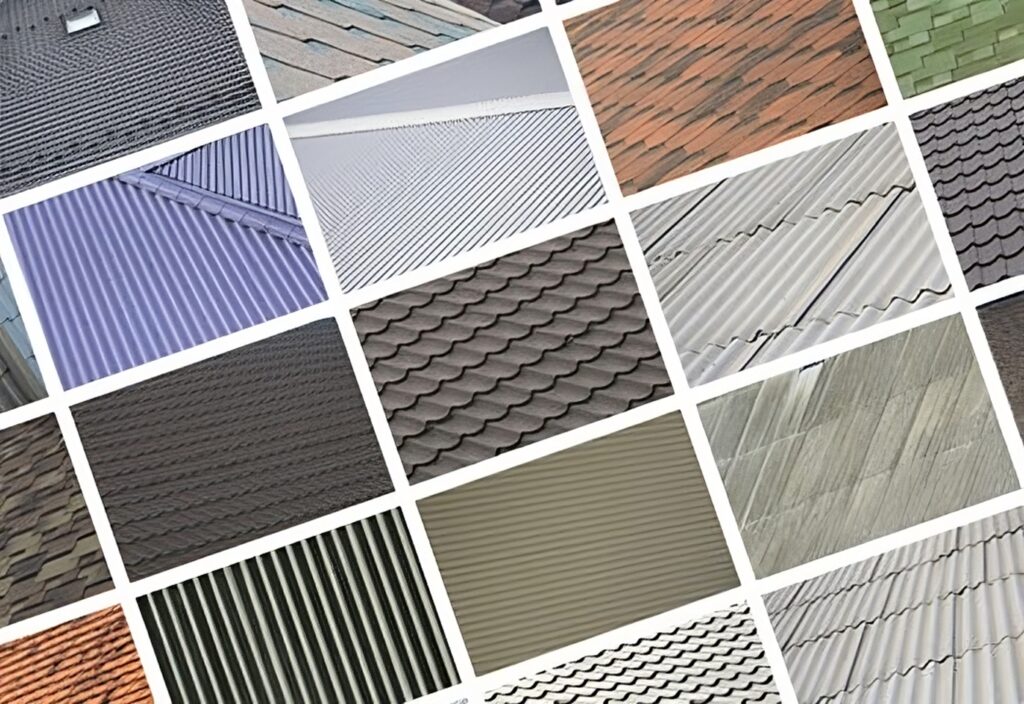
No two projects are the same when calculating the roof replacement cost. The cost can vary significantly depending on several factors.
The size of the roof and its complexity are the first elements to consider. Naturally, larger roofs require more materials and labor, directly influencing the cost. However, the complexity of the roof design also plays a part. More intricate designs may necessitate special skills, additional materials, and more labor hours, all of which can add to the bill.
Size and Complexity
The size of your roof is a major player in determining the full roof repair or full roof replacement estimates and cost. As logic would dictate, larger roofs require more materials and labor, thus leading to a higher overall cost. Conversely, if your roof only needs minor repairs, the total cost will be considerably less than a full replacement.
The complexity of your roof design also plays a significant role. Complex roofs may require more materials and specialized labor, increasing the cost. Factors such as the roof’s pitch, the type of roofing material used, and the overall design all come into play.
A steeper pitch demands more safety measures and time from the laborers and results in faster wear and tear of materials, potentially impacting future maintenance costs.
Roofs with multiple dormers, valleys, or features like skylights may complicate the installation process, necessitating precision and additional resources. Understanding these nuances is essential for homeowners to anticipate the scale and scope of the costs associated with their particular roofing project.
Roofing Materials
The roofing material you choose can significantly impact the roof replacement cost. There are a wide variety of roofing materials to choose from, such as:
- Asphalt composite shingles
- Metal shingles
- Wood shakes
- Clay tile
- And more
The choice of roofing material will influence the overall cost, as different and common roofing materials have varied prices and may require additional components or installation efforts.
For instance, tile roofs, such as slate tiles made from clay or terra cotta, often necessitate special installation techniques and should be handled by skilled professionals to guarantee proper setup. This can result in a higher overall cost.
Labor Costs
Labor costs significantly affect how local roofing companies and contractors determine the total cost of roof replacement. While the materials are a significant cost, the labor can often be just as substantial. The standard labor costs for local roofing contractors typically average around $75 per hour, with potential regional variance ranging from $25 to $37 per hour. These costs are commonly included in the total estimate for the roof replacement, although they may also be billed separately.
Additionally, the complexity of the new roof design can significantly impact labor costs. A new roof costs a more intricate design often requires more materials and labor, resulting in higher installation costs.
Geographic Location Massachusetts
Your geographic location can also significantly impact the roof cost, especially regarding average roof replacement costs elsewhere. In Massachusetts, for example, the average cost of roof replacement is $16,616, with local labor rates ranging from $4.50 to $33 per sq.ft., exceeding the national average price of $3.50 per sq. ft.
Additionally, certain types of roofing contractors and materials, such as metal roofs, may be more suited to the local climate and, therefore, more commonly used. For instance, rubber roofing (EPDM) and asphalt shingles are favored choices for Massachusetts metal roofing contractors and materials because of their resilience, affordability, and capacity to endure the local climate.
Permits and Regulations
Last, you may need to acquire specific permits and comply with regulations when undertaking a roof replacement project. In Massachusetts, a license from the local building department is required for roofing projects. The review process for a roof replacement permit in Massachusetts may vary in duration, typically several days to weeks, depending on the project’s complexity. This ensures the work meets the correct standards and adds cost to your roof replacement project.
Roof Replacement Cost by Material Type

Now that we’ve covered the major factors that affect the cost of a roof replacement let’s delve into how these costs can vary depending on the roofing material you choose. From flat roofs to PVC, asphalt shingles, metal roofs, clay tile roofs, and slate roofing, each material offers its benefits and drawbacks, which can significantly influence the roof warranty project’s overall cost.
Flat Roof
Flat roofs are a popular choice for many buildings, particularly commercial establishments, thanks to their ease of maintenance and relative affordability. The average cost for replacing a flat roof typically ranges between $4 and $13 per square foot. However, the final price tag will depend on various factors, including the specific roof type, the roof material being used, the complexity of the installation, and any additional components required.
PVC Roof
PVC roofing is another popular option, especially for commercial properties. Known for their durability and energy efficiency, PVC roofs have a cost ranging from $3 to $13 per square foot, with variations based on the quality of the material and installation considerations. PVC roofing can be installed using three methods: fully adhered materials, mechanically fastened, or ballasted installation, which may impact the overall cost.
Asphalt Shingles
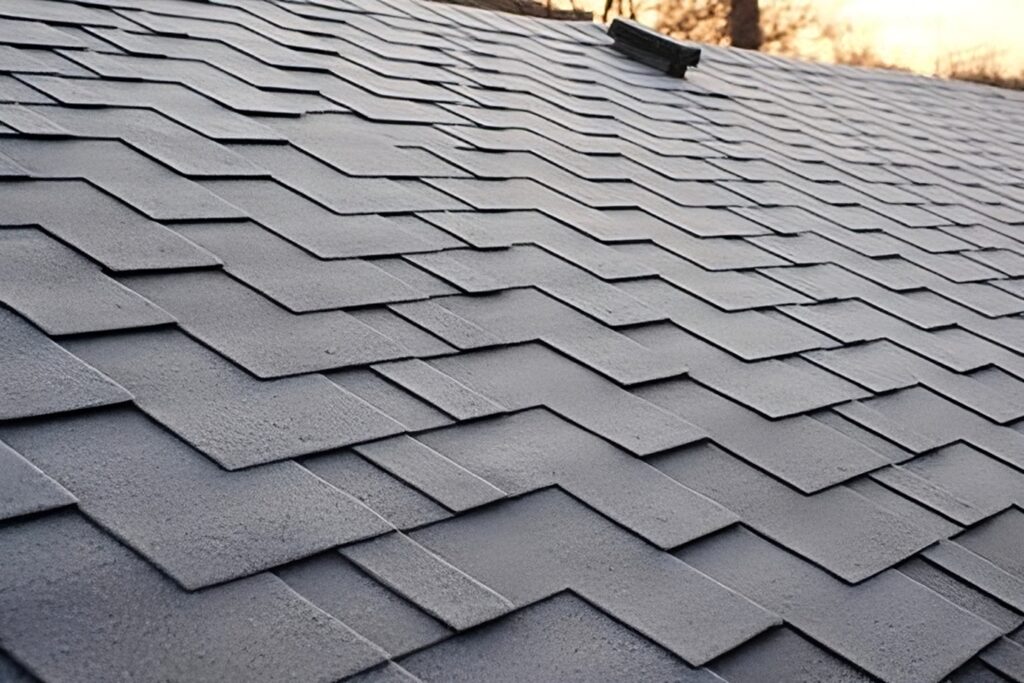
Asphalt shingles are perhaps the most common roofing material used in the United States, and they are known for their affordability and versatility. The average costs of replacing a roof with asphalt shingles vary based on factors such as the roof size and the type of asphalt shingles selected, ranging from $1.71 to $18,000.
Moreover, asphalt shingles generally have a lifespan of approximately 20 years, although the specific type of shingle roof used and environmental conditions can influence this.
Metal Roofing
Metal roofing, a metal roof deck, is a more expensive option but offers several advantages, including durability and energy efficiency. The average cost for metal roof replacement typically ranges between $9,150 and $16,743 and can be influenced by the metal roof, size, and material selection. It’s also worth noting that metal roofing materials come with different price tags, with copper roofing being the most expensive.
Tile Roofing
Tile roofing provides a long-lasting and visually appealing option for many homeowners. The typical cost for installed tile roofing ranges between $7 and $28 per square foot, with the roof material costs and expenses varying from $2 to $10 per square foot. Tile roofing costs can be affected by several factors, such as the type of tile roof material selected, labor expenses, and installation quality.
Slate Roofing per square foot
As a premium roofing option, slate roofing typically costs between $7 to $12 per square foot. Factors that influence the price include:
- The specific type of slate roofing material chosen
- The components of the rest of the roof system
- Installation expenses
- The overall complexity of the roof replacement project.
However, slate roof tiles are known for their outstanding durability, often lasting 15 to over 30 years.
Calculating Your Roof Replacement Cost
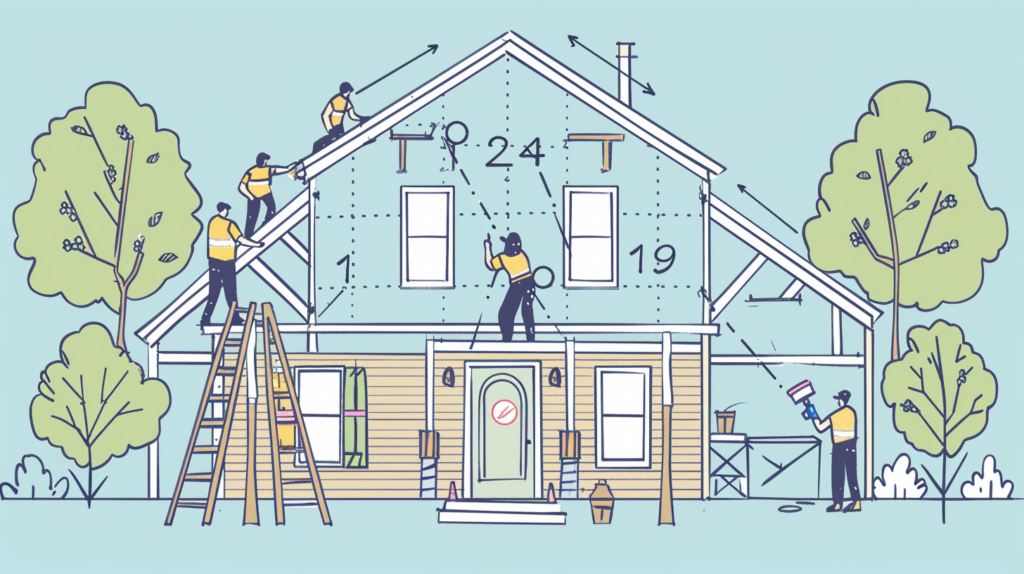
Understanding the potential costs involved in a roof replacement project is crucial. This involves measuring your roof, estimating material costs, and factoring in labor and additional costs.
Let’s look at how each step plays a role in calculating your roof replacement cost.
Measuring Your Roof
Accurate measurement of your full roofing contractors is the first step in calculating the materials needed for the project. By measuring the length and width of each section of the full roofing square together, including any dormers, you can calculate each team’s square footage by multiplying these measurements. It’s also worth noting that the complexity of a roof shape can impact the measurements, particularly in terms of the roof pitch and the number of mounting planes.
Estimating the cost of roofing materials is crucial in calculating your roof replacement cost. This involves considering the type and quality of roofing materials and any additional materials required for installation.
It’s also important to note that the quality of roofing materials can significantly impact the overall cost of a roofing project. Higher-quality materials may have a higher price tag but often offer improved durability and longevity.
Factoring in Labor and Roof Cost
Lastly, when calculating your roof replacement cost, you must factor in labor and additional costs. The average labor cost for roof replacement is around $11,500 for an average-sized home or falls from $4.35 per square foot to $11 per square foot. Additionally, there are potential additional costs to consider beyond roof costs, such as:
- Expenses for shingles
- Old roof removal
- Disposal
- Other necessary materials or labor.
DIY vs. Hiring a Professional Roofing Contractor
Embarking on a DIY roof replacement project can be a tempting way to save money. However, it’s important to weigh the pros and cons before deciding, especially when replacing your existing roof, which may involve replacing the entire roof.
A professional roofing contractor contributes specialized skills, tools, and expertise to execute essential repairs, guarantee the local roofing company and contractors’ resilience and effectiveness, manage the task’s intricacies, including understanding the roof pitch, and achieve accurate results from the outset.
Saving Money on Your Roof Replacement
While roof replacement can be a significant investment, there are several strategies for saving money on your project. Here are some tips:
- Conduct thorough research on contractors.
- Obtain multiple quotes
- Schedule your project during off-seasons
- Explore financing options or home improvement grants.
These strategies can help offset the higher cost of your roof repairs, partial roof replacement, or complete roof replacement.
When to Replace Your Roof
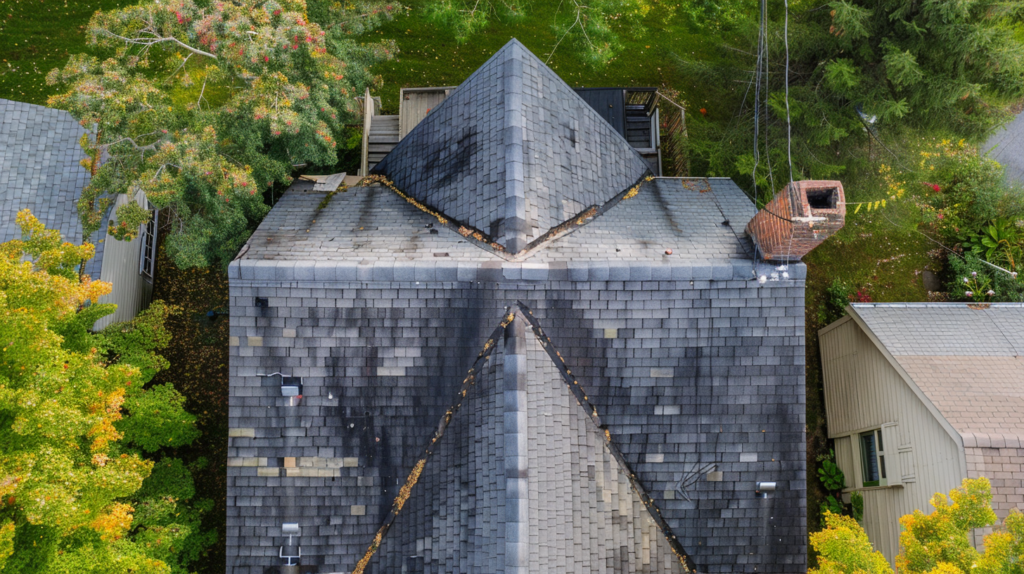
Knowing when to replace your roof is crucial to prevent damage and maintain the value of your home. A roof typically has a lifespan of about 20 years before replacement should be considered. If a roof is 15 years old, it is advisable to begin planning for replacement within the next 5-8 years due to natural wear and tear.
Moreover, a failing roof can significantly impact a home’s value. Appraisers consider the roof’s condition when assessing the property, and problems with slate roofs, such as leaks, missing shingles, and moisture penetration from a deteriorating roof, can result in structural damage, mold, and costly repairs without homeowners insurance and ultimately reduce the property’s market value.
Roofing Insights: Fresh Perspectives and Expert Tips
Preparing for Your Roof Replacement Project
It’s essential to thoroughly prepare before starting your roof replacement project. This involves conducting thorough research on contractors, understanding the costs involved, roof inspection, and planning for potential disruptions during the roof installation.
Maintaining clear and consistent communication with the contractor regarding the project’s timeline and schedule can help mitigate potential disruptions.
In conclusion, roof replacement is a significant investment that requires careful planning and consideration. Every factor shapes the overall cost, from the size and complexity of your roof to the type of materials used, labor costs, and geographic location.
Knowing when to replace your roof, how to save money on your project, and preparing adequately for the project are all essential steps. With this guide, you’ll be well-equipped to navigate your roof replacement project confidently.
Frequently Asked Questions
To calculate the total cost of a new roof, multiply the square footage of your home by $4.35 for each square foot for a lower-end estimate or by $11 for square footage for a high-end estimate.
Replacing 1000 sq ft of roof can cost around $7,000. This cost can vary based on how much the roof takes on materials and how much the new roof costs to make labor.
In Massachusetts, the cost of a new roof typically ranges from $15,000 to $45,000, with the average price being around $21,000 for a 3,000-square-foot roof using architectural shingles. Remember that smaller roofs, like those on townhouses, may cost around $8,000 to $10,000.
To save money on your roof replacement project, conduct thorough research on contractors, obtain multiple quotes, and consider scheduling the project during off-seasons. Additionally, explore financing options or home improvement grants to offset the cost of joint roof replacements or repairs.
It would be best to consider replacing your roof when it reaches around 20 years but start planning for partial roof replacement when it’s around 15 years old, as natural wear and tear will begin to take its toll.
Denis is the driving force behind ID Flat Roof, a leading company in Boston specializing in flat roof repair and installation for over 20 years.
Expertise:
Denis excels in PVC, TPO, EPDM, and rubber roofing. His meticulous approach ensures quality and customer satisfaction.
Innovation:
Denis incorporates cutting-edge solutions like skylights and solar PV roofing.




